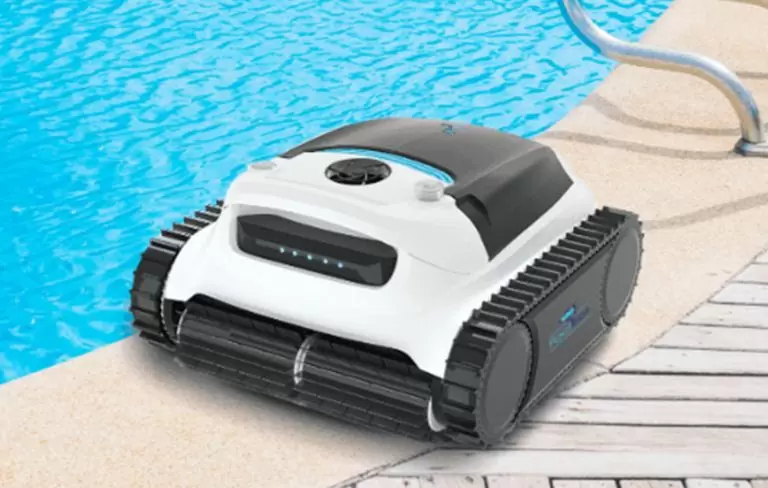All You Need To Know About RV Maintenance
Introduction
Your RV brings you and your loved ones precious memories and endless fun, and you probably want to continue enjoying it for years to come. Whether I’m renting or thinking of how to rent out my rv, taking proper care of my vehicle will ensure that it is long-lasting and that my camping trips are enjoyable and safe.
Because an RV is both a home and a vehicle, it requires a unique blend of maintenance that’s used for both house and automotive maintenance. As with how all automobiles have common maintenance needs, all recreational vehicles will share several basic maintenance responsibilities. All RVs require regular upkeep, from oil changes to correct cleaning approaches. We hope that our useful RV upkeep guide will teach you about general RV care and standard maintenance guidelines!
Engine Maintenance
As these vehicles are huge, hefty, and travel thousands of miles on various roadways, it’s unsurprising that the engine is put under a lot of stress. Furthermore, many RVs sit in storage for long periods throughout winter, which adds additional difficulties for the engine. So, time for some regular maintenance!
Oil Change
As RVs aren’t normally used daily, you won’t need to change the oil as often as you would for your car. Instead, changing the oil in your RV’s engine around 3,000 to 4,000 miles or once per year is advised. Failure to on a routine basis causes excessive damage, which can result in costly repairs or even replacement.
Examine Battery
The battery should always be fully charged. If properly maintained, should last between three and five years in most cases.
Check And Replace Filters
The engine systems rely on filters to keep moving components clean. The coolant, fuel, air, and hydraulic filters should be looked at whenever you change the oil. Replacing filters regularly will help avoid excessive engine wear.
Roof Maintenance
The roof shelters you from the weather, which is why you’ll need to maintain it in good shape.
Whilst it’s often ignored as you don’t often see it, a ton of money might be spent repairing or replacing it if you’re not careful.
Regular Cleaning
Seeking a method to avoid developing filth on the rooftop nooks and crannies that can retain moisture? Schedule frequent roof cleaning for full-time users or cleaning after every trip before storage occasional travelers.
Check For Openings
RV roofs are significantly more sophisticated than a car’s. Seams, vents, air conditioners, and seals are all features that can produce leaks. Once this occurs, it can inflict significant damage on the outside structure of your RV and spread further before affecting the ceiling components. So, do examine your roof’s corners, ducts, skylights, and air conditioner regularly to avoid costly damage. Use sealants to patch whenever needed.
Cover It
Whenever it’s not used, cover the roof with an RV cover to prevent damage from UV rays and severe weather.
RV Storage
The specific storage you pick and how well you prepare your RV for it will help extend the lifespan of your RV. Do note that you should complete some upkeep duties, regardless of the type of storage you pick.
Outdoor
Sometimes referred to as open-lot storage, this method exposes your RV to environmental factors, so do utilize some sort of cover.
Indoor
This is the safest method of storage since it keeps your RV within a completely protected structure.
Covered
The RV will be protected by a roof and, in some cases, partial walls. To reduce UV exposure when using covered storage, try to park your motorhome as far apart from exposed walls.
Awning Cleaning
Awnings give additional shade and are commonly found on motorhomes. Clean your awning often, ideally after every usage, and allow it to dry entirely before storing it. If you don’t have time to clean it thoroughly, be sure to at least brush off debris (such as twigs, brush, and dirt) after each usage.
Wheels, Tires, And Brakes Maintenance
On the road, your wheels and tires help you stay safe. It’s imperative to ensure that they’re in good working condition before embarking on each trip. You’ll want to follow these measures to make sure that your wheels can keep you and your family safe on the road!
Clean And Protect Tires
UV radiation may quickly deteriorate your tires, causing you to replace them. Wash your tires regularly and apply a UV protectant to them. Cover them with RV tire covers whenever you don’t drive the RV for an extended length of time.
Check Tire Pressure And Secure Wheel Lug Nuts
If not maintained, can result in a dangerous situation with a lost wheel or tire rupture. Check your wheel before each journey to be sure the lug nuts aren’t loose. Also, examine your tire pressure and make any required adjustments if overinflated or underinflated.
Maintain The Brakes
Brake repair should be performed before going on your first trip of the season. Check that the brakes are in good working condition and that they engage as intended. If needed, replace them as soon as possible should they not be working properly. You should also grease the wheel bearings.
Seals And Slide-outs Maintenance
Seals on windows, roofs, and doors gradually deteriorate with use, allowing moisture to enter inside your motorhome. Maintain the condition of your RV seals by examining them once every six months for deterioration and strain. Rubber seals should be lubricated to keep them malleable. Check for fractures, water stains, and degradation on all seals. If seals get to an unfixable state, have them scrapped and replaced.
If your slide-out squeals and creaks, you’ve probably neglected to do some necessary basic upkeep. Rusting and corroding can be caused by the accumulation of filth and debris in the rails. Wipe and grease dirty slide-out rails twice each year, and whenever they produce unusual noises or do not perform correctly, to prevent having to replace them — which will be more expensive.
Preparing Your RV for Winter
If you live in an area that experiences winters with freezing temperatures, you perform this winterization process in preparation for winter storage.
Clean every inch of the interior, including emptying cabinets, stripping the sheets, removing towels. Here are some of the recommended measures to take. Appliances should be unplugged and stored, and the refrigerator and freezer should be defrosted and emptied. To keep small rodents out of your RV, look for holes or openings and seal them; and if you want to prevent bugs, use dryer sheets or wood chips. Drain the plumbing system and filter with antifreeze, and don’t forget to clean the outside of the house. Lastly, examine the seals for any damage, and lock the door.
Conclusion
If you want to create your dream mobile home, you need to put in the work for it to become a reality. Remember to check every first trip of the season or for every trip to ensure peace of mind for your loved ones and yourself.










